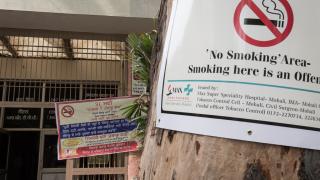Implementation means putting tobacco control laws into practice and ensuring policies achieve their intended outcomes. Why is implementation important? Because strong policies do not equate to strong compliance.
Governments face many barriers in implementing and enforcing tobacco control laws. When such laws are not well implemented, they do not protect people and can lead to a lack of trust from citizens. Without improvements in policy implementation and enforcement, new generations will not be protected from tobacco harms and current achievements will be eroded.
Find out more about different elements of tobacco control policy implementation below.
Regulations
Issued by an executive authority or government regulatory agency, a regulation (or rule, order, ordinance or guideline) explains how to implement a specific law and its related penalties and sanctions.
Countering Industry Interference
Extreme vigilance is the only way to counter the tobacco industry’s attempts to interfere with and muddy public health policies.
Coordination and Planning
Multiple government agencies are frequently tasked with tobacco control law implementation and enforcement. Effective coordination and communication between them is key.
Stakeholder mobilization
Tobacco control law compliance depends on diverse stakeholders with both the capacity and commitment to effectively implement and enforce them.
Public communications
Public education campaigns enumerating the benefits of tobacco control legislation help build consensus and facilitate smooth implementation.
Enforcement Actions
Multiple agency coordination, stakeholder engagement with stakeholders, and strategy and planning activities are all critical components of enforcement.
Monitoring and Evaluation
A plan to assess progress and evaluate impact must precede implementation.
Compliance
Tobacco control law compliance increases the percentage of the population that is protected from tobacco harms.








